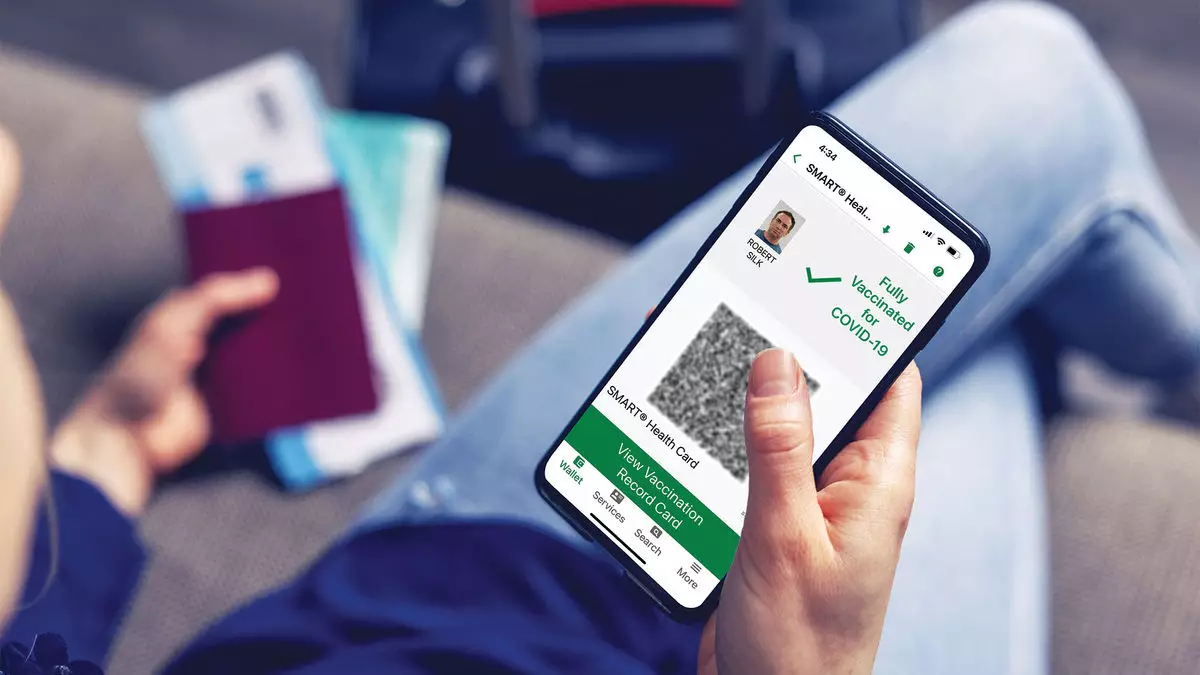In recent years, the global community has witnessed a resurgence of infectious diseases, starkly evidenced by the recent outbreak of mpox in Central Africa. This alarming scenario serves as a potent reminder of the unpredictable disruptions posed by public health emergencies. Fortunately, the trials of the COVID-19 pandemic spurred innovation in public health infrastructure, particularly in digital vaccination credentials. These advancements can facilitate prompt cross-border travel during future emergencies, providing a crucial framework for rapid response and adaptation.
Throughout the COVID-19 pandemic, health officials and technologists collaborated to streamline the creation and dissemination of digital vaccination credentials. According to Heather Roth, director of the immunization branch for the Colorado Department of Public Health & Environment, the challenging experiences from the pandemic have set the stage for more efficient replication of these systems in the future. The introduction of digital immunization records has been adopted across 25 states in the U.S., where residents can access Smart Health Cards. These digital records, encapsulated in convenient QR codes, contain standardized data that can be universally recognized by airlines, healthcare systems, and border authorities.
While some states lead in issuing Smart Health Cards, pharmacies and medical providers in various jurisdictions also offer these digital records. The process of retaining vaccination histories on mobile devices ensures that travelers can easily produce their immunization documents as needed. Countries like Canada, Japan, and nations in the European Union are also adopting these standards, marking a fundamental shift towards more secure and efficient health documentation globally.
The use of digital health records has primarily been focused on COVID-19 vaccines. However, experts foresee that other vaccines, such as those for seasonal flu, will soon also be integrated into this system—as seen in New York’s adoption of Smart Health Card QR codes for flu vaccinations. This proactive approach remains crucial as public health experts emphasize that it isn’t a matter of “if” but “when” the next health crisis will strike. With the World Health Organization (WHO) recently classifying the mpox outbreak as a public health emergency of international concern, the infrastructure for quick adaptations is essential.
JP Pollak, co-founder of the Commons Project, highlights the ease with which new QR codes can be added for up-and-coming vaccines. Such agility is indispensable in scenarios where containment of emerging diseases must be swift to prevent global spread.
During the pandemic, various airlines and travel organizations implemented digital health passes to expedite the revival of international travel. While many of these systems have since been set aside, experts assert that they can be rapidly modified to accommodate Smart Health Cards. This flexibility allows travelers to present QR codes directly at checkpoints, ensuring smoother transit between borders even during health emergencies.
While current QR codes primarily represent COVID-19 vaccinations, advancements are being made towards issuing digital PDF records that encapsulate a traveler’s entire immunization history. For instance, Colorado’s online portal launched a service in 2021 which enables quick access to vaccination records—a feature that is especially beneficial for travelers heading to regions where vaccinations, like yellow fever, are mandatory.
Moreover, with mobile applications such as Docket, managing vaccination records has become increasingly accessible. Individuals can download the app and obtain required vaccination documents on the go, making it a veritable lifesaver for last-minute travelers. The seamless integration of these digital tools could redefine the travel experience, especially as globetrotting resumes post-pandemic.
In parallel, the emergence of initiatives like the International Patient Summary (IPS) could revolutionize access to health records globally. This initiative enables individuals to share their comprehensive health data in a format that healthcare providers worldwide can interpret, streamlining access to care if unexpected medical treatment is necessary abroad.
As nations and health organizations explore ways to safeguard public health, the progress made in digital health concepts reflects an important leap forward. While challenges remain—including the variability in facility capabilities to read IPS codes—experiments with implementations, such as Malaysia’s efforts during Hajj, provide promising lessons. As Eric D’Amore suggests, many individuals are unaware of these evolving possibilities, highlighting the need for awareness and education surrounding these digital health tools.
The adoption of digital health credentials marks a significant shift in how healthcare interacts with public health crises. With the likelihood of future outbreaks, the frameworks established during the COVID-19 pandemic can provide a more responsive and adaptable global health infrastructure. Embracing these technologies could not only facilitate safe international travel but also empower individuals to better manage their health requirements on a global stage.


Leave a Reply